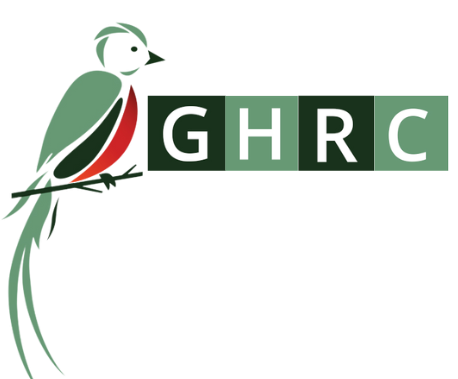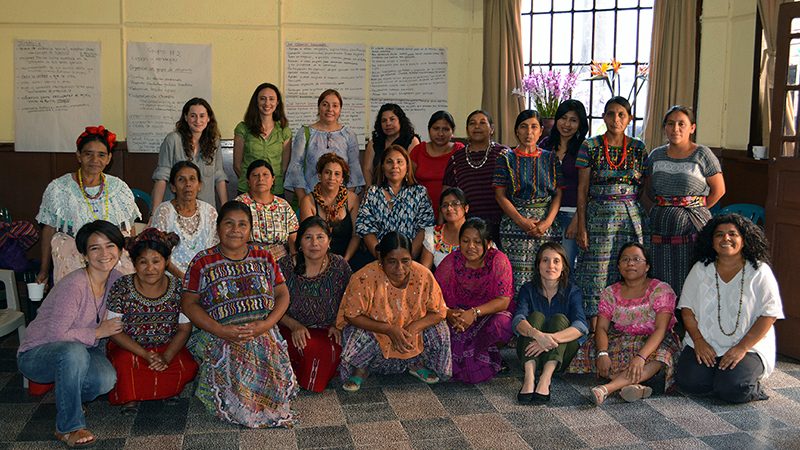On June 23, an estimated fifty thousand Guatemalan took to the streets in dozens of towns across the country, calling for the government to respect indigenous people’s rights. A central demand was respect for the right to define what constitutes “development” in their communities and territories.
For the last several years, many of the conflicts over development have centered on large-scale projects like mines and hydroelectric dams, as well as monoculture crops like African palm and sugar cane. In response to a wave of concessions to national and transnational companies, community resistance movements have become increasingly organized and widespread. The defense of land and territory has become a cause for which many Guatemalans are willing to give their lives — and perhaps one of the biggest human rights concerns.
From 1955 to Today
In Guatemala, this resistance comes from a long history of drastic economic inequalities and unbridled corporate power, which has left a legacy of displacement, violence, torture and death. In 1955, a US company — United Fruit (UFCO) — prompted the overthrow of a democratically elected government. The company owned huge tracts of land in Guatemala and wielded immense political influence; its advocates in the US included then Secretary of State John Foster Dulles, and his brother Allen Dulles, director of the CIA. Unhappy with land re- distribution efforts, the UFCO called for US intervention, using the threat of the expansion of communism in Latin America as justification.
The resulting CIA-backed coup was only the beginning. Most of the democratic reforms of the previous ten years were dismantled, ensuring that the Guatemalan oligarchy an international business interests could maintain their quota of power. Then, over the next forty years, the US closely oversaw the Guatemalan government’s widespread use of torture, forced disappearances, massacres, rape, and other abuses. Many of those targeted were local leaders seeking to address needs in their communities, or promoting equal rights and social change. Over a million people were displaced by the violence.
From the Cold War to the War on Drugs
Fast forward to 2014, and the very same communities dispossessed and massacred during the war are being overrun by a wave of extractive projects that displace families and contaminate the environment. Some indigenous leaders have even referred to the impacts of megaprojects as “economic genocide.”
In direct violation of obligations under international law, the Guatemalan government has neglected to consult those affected by these projects and has refused to recognize the legitimacy of community-led referendums, which – from Huehuetenango to Quiché to Santa Rosa – have resulted in a resounding rejection of mines and dams.
The projects are simply imposed – first through attempts to conceal information, then through lies, intimidation, and threats, and then by open displays of violent force, with the Guatemalan police and military acting as de facto private security guards for the companies.
Community leaders who organize opposition are often victims of threats, attacks, and public defamation campaigns. The discourse used differs little from that of 30 years ago. Some still refer to the “communist threat” and confronting an “internal enemy.” Others have simply replaced the word “communist” with “drug trafficker,” ”terrorist,” or “enemy of the state.” Not surprisingly, this shift echoes the progression of US political and economic policies in the region, from the “war on drugs” to the “global war on terror.”
It’s not just rhetoric. Increasingly, community leaders face trumped- up criminal charges filed by the company or its affiliates.
Development for Whom?
The Guatemalan government and business sector argue that mines and dams will bring much- needed income for the state and job opportunities for impoverished communities. Yet those most impacted by the projects have found the opposite: few local jobs are created; access to health care and education remain dismal; the only roads improved are those the company needs to transport its product; the tax and royalty income generated is not invested at the local level and the vast wealth generated by Guatemala’s natural resources fills the pockets of foreigners.
Rather than “development,” communities face increasing tension and social disintegration, along with long-term environmental degradation that affects the small- scale agricultural production on which they rely. Poorly conducted environmental impact assessments are simply rubber-stamped; the government has even admitted that relevant ministries do not have the capacity to review them. Rural and indigenous communities across the country are calling for a different type of development: a model that prioritizes well-being over profit, that recognizes the importance of protecting water, soil, flora and fauna as part of an intricate web of life that sustains us. Their voice, and their vision, deserve to be heard.

